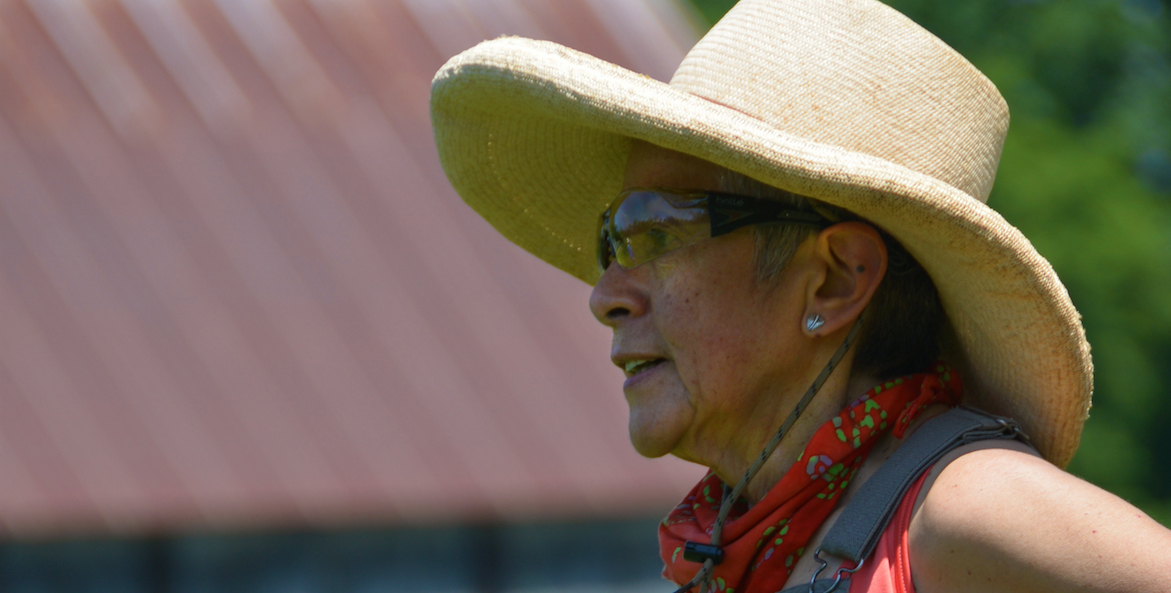Despite this year's challenges, we remain steadfast, persistent, and focused on our mission to Save the Bay. From CBF staff and volunteers to advocates, teachers, and students, We the Watershed are finding innovative ways to carry on our important work for clean water. Find these stories and more in our Fall/Winter issue of Save the Bay magazine.
Peru native Norka Ruiz Bravo’s emails close with quiet sign off: “Infinite diversity in infinite combination (IDIC).” Star Trek fans know this as the basis of Vulcan philosophy.
“Yes, I’m a science nerd,” admits Bravo. “It speaks to how big the universe is and puts me in my place.” Following her retirement as a deputy director at the National Institute of Health, CBF’s Clagett Farm in Upper Marlboro, Maryland, has become Bravo’s “place.”
Five years ago, Bravo came to Clagett for the birthday party of Assistant Farm Manager Dave Vernon. She was recently retired and looking for volunteer opportunities. “It’s quite hard work,” Dave told her. “She’s been committed ever since.”
Volunteering at Clagett helps feed Bravo’s love of being outside. “I always wanted to be a Park Ranger, like Smoky the Bear,” she says. With her love of nature, Bravo also brought her science with her. The self-proclaimed problem solver worked with Farm Manager Michael Heller and Vegetable Production Manager Carrie Vaughn to clear a 20-by-20 foot plot for some experiments. The team tested species that might be tolerant of climate changes. One is amaranth, a herbaceous shrub with a pollen grain structure that grows naturally in Peru’s Andes.
Today, with pandemic safety precautions in place, you might find Bravo in overalls and a Peruvian straw hat happily pulling onions from the earth. “Giving back to something bigger is a feel good for me,” she says. Bravo and other farm volunteers help support CBF’s sustainable agriculture methods, Community Supported Agriculture program, and fresh produce donations to the Capital Area Food Bank.



